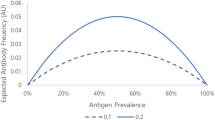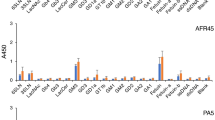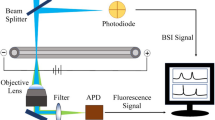Abstract
IT was shown by Dacie1 that normal human sera contain what appears to be an incomplete antibody which becomes attached to erythrocytes at 4' C. and which can be demonstrated by the antiglobulin technique of Coombs. It appears, however, that the substance in the Coombs reagent (rabbit anti-human globulin serum) involved in the reaction is distinct from that involved in the agglutination by Coombs reagent of red cells sensitized by incomplete Rh antibodies, since the Coombs reagent can be separated into two fractions by absorption with suitably sensitized cells.
This is a preview of subscription content, access via your institution
Access options
Subscribe to this journal
Receive 51 print issues and online access
$199.00 per year
only $3.90 per issue
Buy this article
- Purchase on Springer Link
- Instant access to full article PDF
Prices may be subject to local taxes which are calculated during checkout
Similar content being viewed by others
References
Dacie, J. V., Nature, 166, 36 (1950).
Witebsky, E., Blood (Spec. Issue No. 2), 66 (1948).
Stratton, F., and Renton, P. H. (unpublished observations).
Author information
Authors and Affiliations
Rights and permissions
About this article
Cite this article
RENTON, P. Separation of Coombs Reagent into Two Fractions. Nature 169, 329–330 (1952). https://doi.org/10.1038/169329b0
Issue Date:
DOI: https://doi.org/10.1038/169329b0
This article is cited by
Comments
By submitting a comment you agree to abide by our Terms and Community Guidelines. If you find something abusive or that does not comply with our terms or guidelines please flag it as inappropriate.



